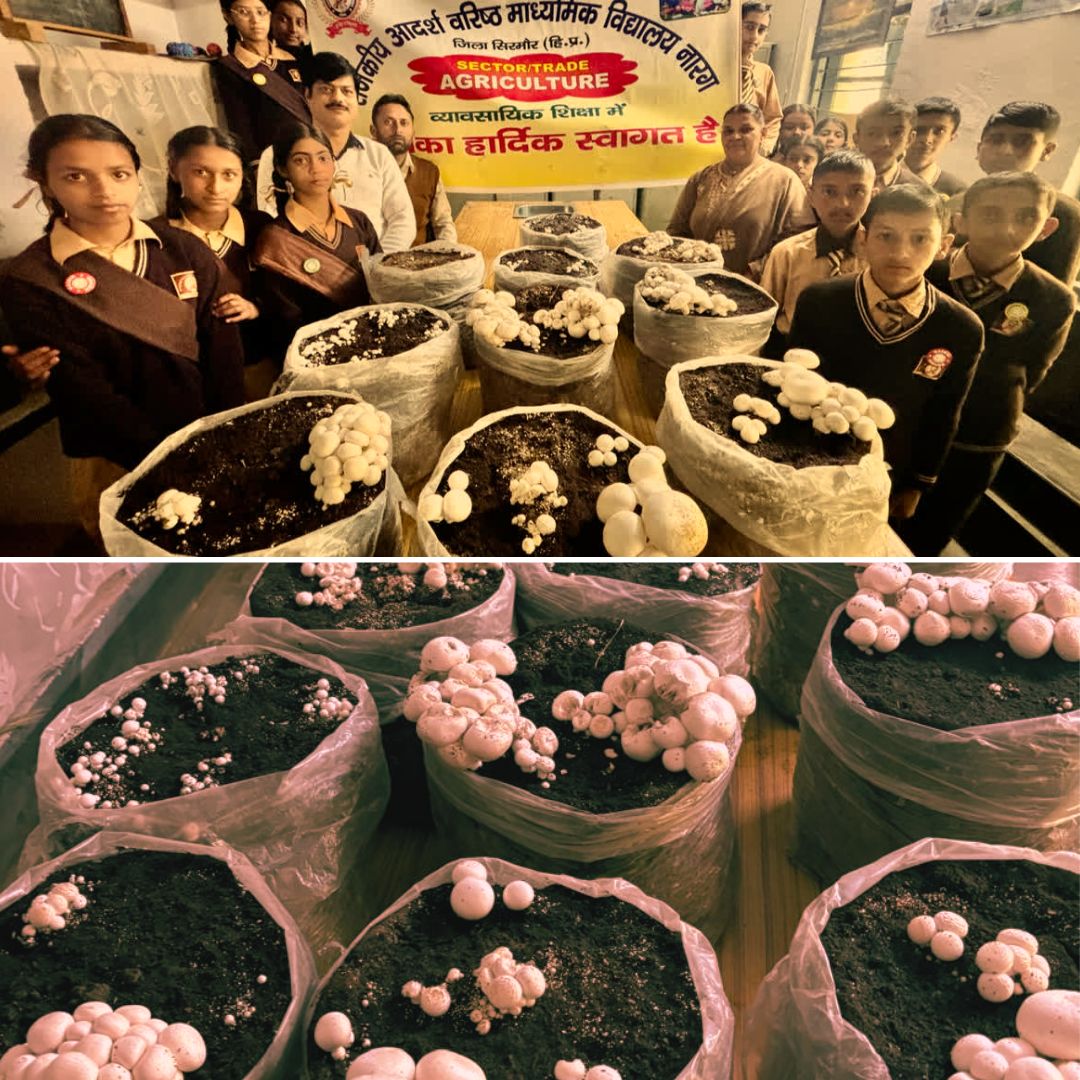In a pioneering blend of education and sustainability, PM Shri Pandit Durga Datt Government School in Narg, Himachal Pradesh, has turned its science classroom into a mushroom farm.
Class 9 students, guided by teachers and Nauni University experts, successfully cultivated organic button mushrooms using low-cost methods like wet sacks and a 200-watt bulb. The harvest now supplements mid-day meals, addressing nutrition and practical learning simultaneously.
From Classroom to Cultivation: Science in Action
Inside a classroom transformed into a makeshift laboratory, students meticulously monitor humidity levels and adjust wet jute sacks under a single bulb. Under teacher Neha Koondel’s guidance and support from Nauni University’s mushroom cultivation experts, the project began as an experiment to replace rote learning with tactile engagement.
“We used agricultural waste like wheat straw and followed organic protocols,” explained Koondel. The mushrooms sprouted within days, with students documenting growth stages as part of their biology curriculum. Social media posts from the school, shared widely on platforms like LinkedIn, show students proudly holding their harvest—a testament to the project’s immediate success.
A Model for Sustainability and Nutrition
The initiative tackles dual challenges: disengagement in traditional science education and nutritional gaps in mid-day meals. By integrating cultivation into daily lessons, students learn biology, chemistry, and environmental stewardship.
“They now understand concepts like mycelium networks and decomposition firsthand,” said Koondel. While no recent official statements from the Himachal Pradesh education department are available, the project aligns with the National Education Policy 2020’s emphasis on experiential learning.
The school plans to scale production, aiming to donate surplus mushrooms to nearby anganwadis, thereby extending its community impact.
The Logical Indian’s Perspective
This initiative is more than an educational experiment—it’s a blueprint for reimagining rural education. By grounding science in tangible outcomes like food security, the school fosters curiosity, responsibility, and environmental consciousness.
Such projects challenge urban-centric narratives of innovation, proving that resourcefulness thrives where resources are scarce. As India pushes for holistic education under NEP 2020, how can policymakers ensure grassroots innovations like Narg’s mushroom lab receive the visibility and funding they deserve? Join the conversation below to discuss how experiential learning can reshape India’s classrooms.












